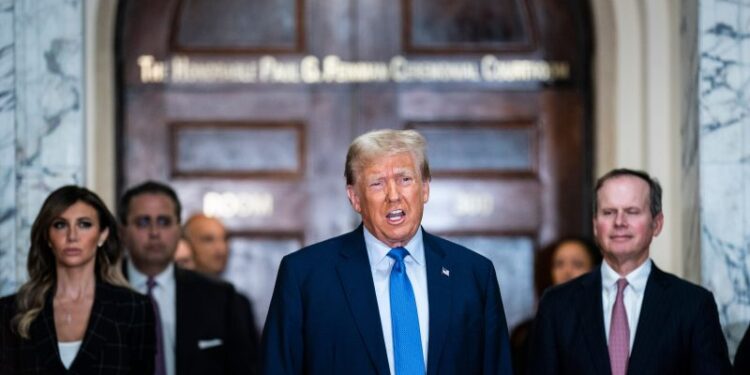The Department of Justice (DOJ) has made it clear that Donald Trump’s belief that the 2020 presidential election was stolen does not constitute a legal defense in his upcoming second impeachment trial.
The DOJ recently filed a brief with the U.S. Senate which outlines this position, arguing that Trump’s “belief that the election results were fraudulent” should not be considered in the impeachment trial. This marks a stark contrast with Trump’s rhetoric leading up to the attack on the U.S. Capitol on January 6th.
The DOJ’s brief goes on to argue that “the former president’s speech [on January 6] does not provide an excuse for the conceded charge of impeachment nor furnish a defense thereto. To the contrary, the persistence of his false statements undermines the national discourse and the nature of the political debate as it relates to the holding of free and fair elections in this country—a bedrock of our democracy.”
The DOJ’s brief highlights what it believes to be the core legal argument in the second impeachment trial, challenging Trump’s belief that the election was stolen. They argue that this is a weak defense that could encourage similar behavior and should, therefore, not be considered.
Ultimately, this argument demonstrates that Trump’s belief that the election was stolen does not constitute a legal defense in his second impeachment trial. While the outcome of the Senate trial remains to be seen, the DOJ has made it clear that they do not consider this belief as a valid defense.

















